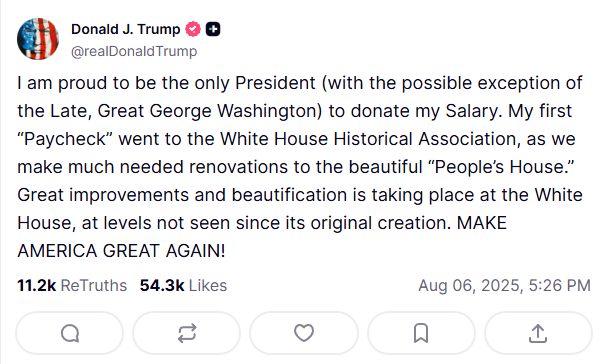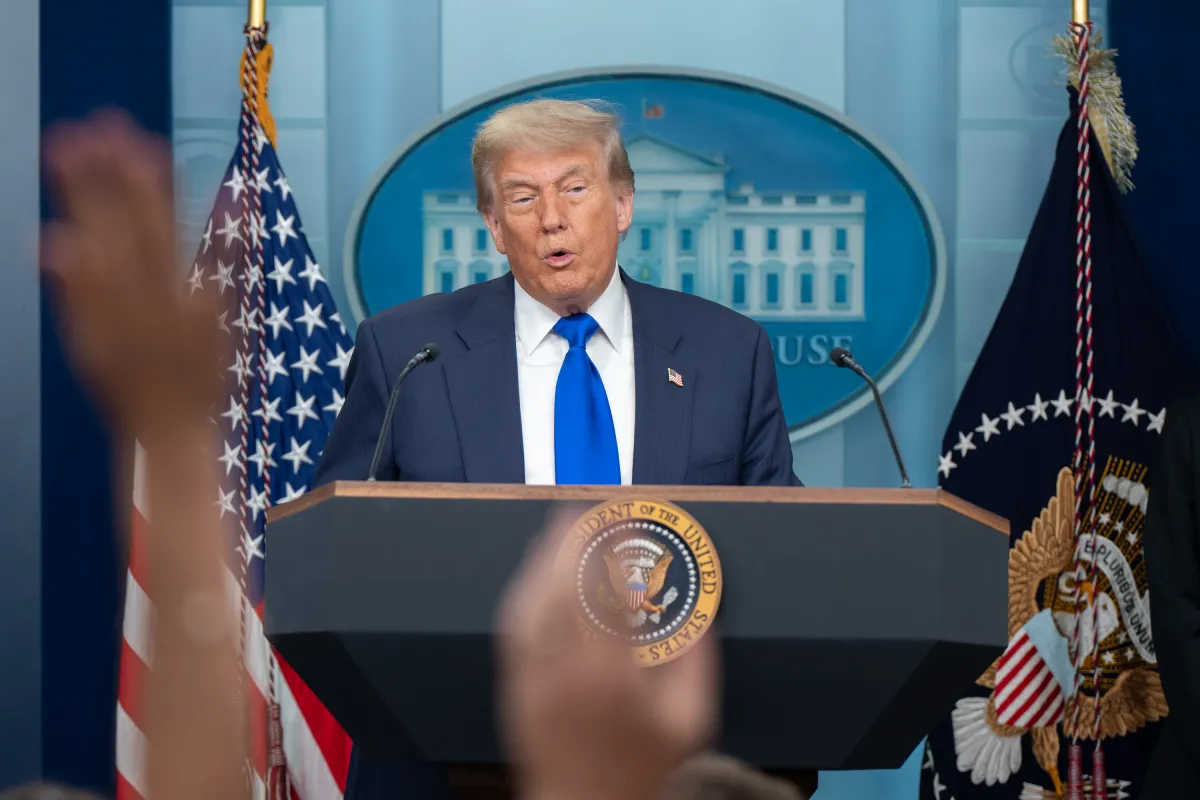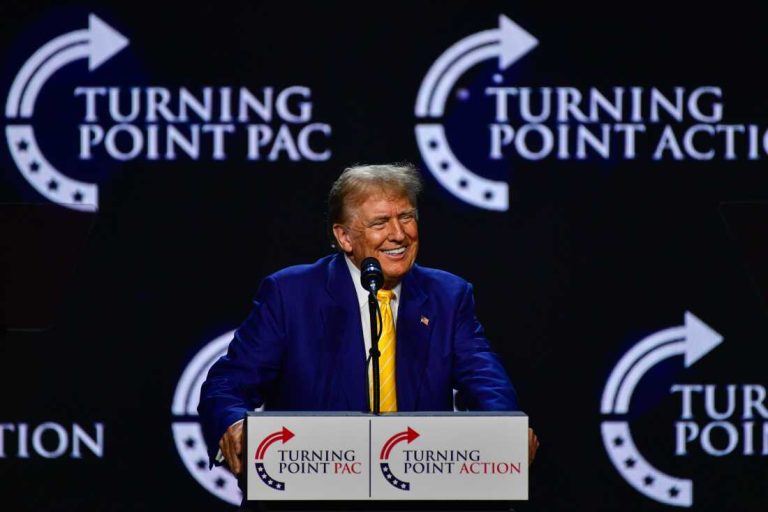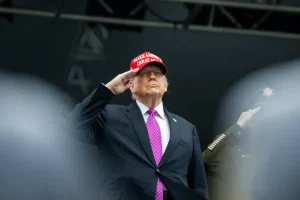Despite the intense spotlight that surrounds him, former and current President Donald J. Trump continues to defy expectations in ways that generate both praise and skepticism. Now serving his second term as the 47th President of the United States, the 79-year-old leader recently made headlines once again—this time, not for his bold foreign policy decisions or sweeping domestic reforms, but for how he chooses to handle his presidential salary.
In a recent post shared on his platform, Truth Social, on August 6, President Trump reaffirmed a promise that traces back to his first term in office: he is donating his entire $400,000 annual salary. Trump wrote, “I am proud to be the only President (with the possible exception of the Late, Great George Washington) to donate my Salary.” He elaborated that his first paycheck of the term was directed to the White House Historical Association, earmarked for renovation efforts to what he referred to as the “People’s House.”
He continued, “Great improvements and beautification is taking place at the White House, at levels not seen since its original creation. MAKE AMERICA GREAT AGAIN!”
While Trump’s announcement may appear to underscore his dedication to public service and patriotic symbolism, the historical accuracy of his claim is somewhat shaky. Records indicate that at least three other U.S. Presidents—John F. Kennedy, Herbert Hoover, and George Washington—also declined their salaries or donated them during their time in office. That would make Trump at least the fourth U.S. President to do so, rather than the only one, as he suggested.
Nevertheless, the gesture is notable, particularly given Trump’s high-profile business background and immense personal wealth. According to Reuters, the President declared more than $600 million in earnings in 2024, generated from a wide array of ventures including real estate, golf resorts, licensing agreements, and even cryptocurrency holdings. His total net worth is estimated at around $1.6 billion.
By law, under Article II, Section 1 of the U.S. Constitution, a sitting President is required to receive compensation. Trump reportedly fulfills this obligation by accepting a nominal payment of $1 per year, while donating the rest.
This isn’t the first time Trump has emphasized his decision to reject the traditional presidential paycheck. Back in 2017, during his first term as the 45th President, Trump made headlines by announcing his intent to donate the entirety of his annual salary to charitable causes. The Trump administration later released information showing that portions of his salary were distributed to federal agencies including the National Park Service, the Small Business Administration, and the Department of Health and Human Services, among others.
The intent, according to Trump and his team, was to support initiatives that aligned with the administration’s goals—though critics were quick to scrutinize the transparency and follow-through on such donations. According to CNN, of the six years of Trump’s tax returns reviewed by the House Ways and Means Committee, 2020 was the only year in which no charitable donations were recorded, raising questions about whether he fully honored his philanthropic pledges during that time.

Even with that uncertainty, Trump’s choice to publicize his donations stands in contrast to many modern presidents who quietly manage their earnings and charitable giving. His repeated references to George Washington and the symbolism of the White House reinforce Trump’s strategic use of national imagery and historical legacy to bolster his public persona.
Adding to the context, Trump is also entitled to other financial benefits tied to his office. In addition to his base salary, the president receives a $50,000 annual expense allowance, $100,000 for travel, and $19,000 for entertainment. It is unclear how or if Trump utilizes those supplementary funds, but these benefits are longstanding components of the presidential compensation package.
Ultimately, Trump’s decision to donate his salary—whether viewed as a genuine act of philanthropy, a political statement, or a blend of both—continues to fuel discussion. It’s a symbolic gesture that reinforces his narrative of serving “for the people,” despite his vast wealth and ongoing controversies. Whether it significantly impacts public perception or not, one thing is clear: Trump knows how to keep the spotlight firmly on himself, even when the topic is something as seemingly routine as a paycheck.

Emily Johnson is a critically acclaimed essayist and novelist known for her thought-provoking works centered on feminism, women’s rights, and modern relationships. Born and raised in Portland, Oregon, Emily grew up with a deep love of books, often spending her afternoons at her local library. She went on to study literature and gender studies at UCLA, where she became deeply involved in activism and began publishing essays in campus journals. Her debut essay collection, Voices Unbound, struck a chord with readers nationwide for its fearless exploration of gender dynamics, identity, and the challenges faced by women in contemporary society. Emily later transitioned into fiction, writing novels that balance compelling storytelling with social commentary. Her protagonists are often strong, multidimensional women navigating love, ambition, and the struggles of everyday life, making her a favorite among readers who crave authentic, relatable narratives. Critics praise her ability to merge personal intimacy with universal themes. Off the page, Emily is an advocate for women in publishing, leading workshops that encourage young female writers to embrace their voices. She lives in Seattle with her partner and two rescue cats, where she continues to write, teach, and inspire a new generation of storytellers.









